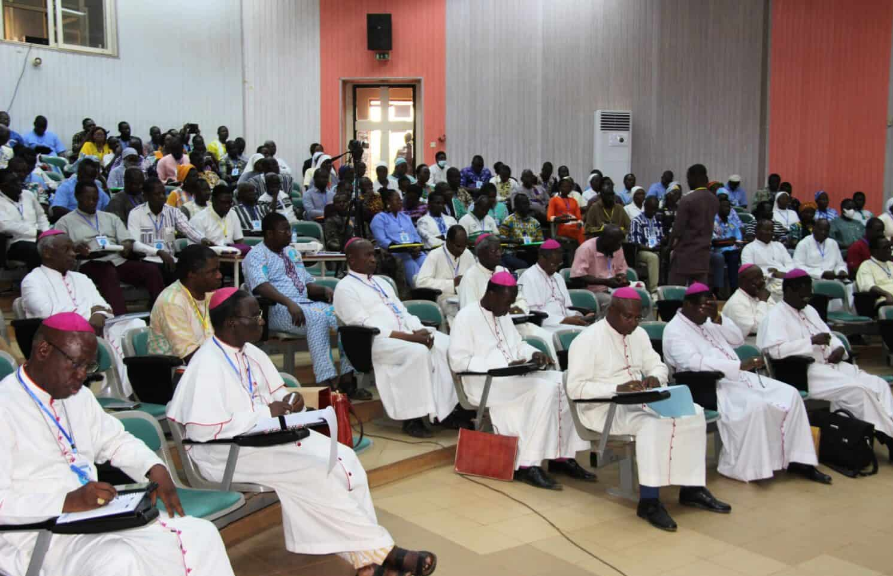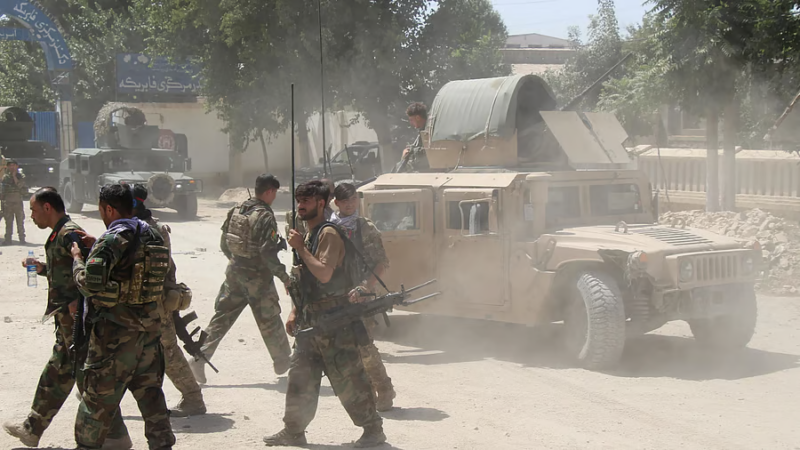125 years of evangelism in Burkina Faso: A vibrant church in spite of violence and terrorism

Burkina Faso is celebrating 125 years of evangelization in a country currently marred by violence and terrorism. The African nation, which holds first place in the world terrorism ranking, suffers from severe security issues, constant attacks against civilian populations, and entire regions that can only be reached by helicopter.
Despite this situation, the Church in Burkina Faso is joyfully celebrating the arrival of the first members of the Society of Missionaries of Africa, known as the White Fathers, due to the color of their habits, who brought the Faith, but also other elements that have been crucial to the country’s progress.
This legacy is reflected in the commemorative logo, which, these days, can be seen in local churches, but also on the traditional clothes worn by the Burkinabe: a map of Burkina Faso with symbols of the faith (the Bible, the Cross, and the Eucharist), of education (a compass, a set-square, and a pen), and social, economic, and human development, represented by bunches of sorghum, a traditional Burkinabe cereal. The image is surrounded by cowrie shells, which were used as currency before colonization.
Burkina Faso is majority Muslim, but there is also a large number of followers of traditional religions. Despite being less than 30 percent of the population, Catholics have played an important role in the consolidation of society. All three religions have traditionally coexisted in harmony, and even today, most Catholics have family members – parents, in-laws, or siblings – belonging to other religions. Religious belief had never been a dividing factor until the arrival of terrorist groups about a decade ago. These groups seek to conquer territory and impose an extremist version of Islam. Many of them are linked to international terror groups, like al-Qaeda and the Islamic State.
To celebrate the 125th anniversary of evangelization, the Burkinabe Church, with the help of Aid to the Church in Need (ACN), organized a three-day conference on the current situation and the country’s future challenges, providing attendees with the opportunity to reflect on issues such as education, national security, interreligious dialogue, and the family. According to Archbishop Laurent Dabiré, president of the Episcopal Conference of Burkina Faso and Niger, “It was a moment of sharing, reflection, and research. Together, as a Church and as a family, we gathered to prepare the ground for the pastoral work of tomorrow.”
The theme of the anniversary celebrations is “Church, God’s family.” Archbishop Dabiré of Bobo-Dioulasso explained the concept to the ACN delegation invited to take part in the event. “We often forget to speak about the Church as a family, the family of God, the family of the baptized. For Africans, this is a very important definition of the Church. St. John Paul II used this image and said it was not only important for us, but for the universal Church. The image of the family in Europe has been badly distorted, and many of the problems that arose there are starting to affect us as well, so it is important to discuss this issue.”
Because of the environment caused by the violence and terrorism, many families in Burkina Faso today are experiencing division. During a meeting with ACN, three seminarians from the Major Seminary of Saint John the Baptist in Uagadugu, whose studies are supported by the foundation, shared their tragic circumstances. One of them has not seen his family in years, because they live in a high-risk area, surrounded by terrorists. They only receive humanitarian aid every two or three months, and live in constant fear, hunger, and solitude. The families of the other two are internally displaced, since they had to abandon their villages because of terrorist attacks, and currently survive on help provided by the Church. The support provided by the Church to the internally displaced is crucial, being one of their only sources of hope and material aid in these difficult times.
Despite the current reality in Burkina Faso, Catholics celebrate their faith, and churches are full. Over two million people are believed to have attended a Mass presided by Cardinal Parolin in February, in the Shrine of Yagma, about 15 kilometres outside of the capital, in what was described as an explosion of joy. Thousands of adults are preparing to be baptized this coming Easter, and hundreds of seminarians are discerning their vocation to the priesthood. ACN is helping to fund the construction of a new building in the seminary in Koumi, where the young men study philosophy, because the current space is insufficient for the number of students, and some have even been sent to neighboring countries, such as Mali or Niger.
Around 250 people took part in the conference, including diocesan delegations and political and religious guests. “All the religions and social actors were invited to reflect together on how to face the challenges and promote interreligious dialogue. We opened up new paths to strengthen the Church as a family, to boost the Catholic schools, encourage interreligious dialogue, and to promote ecumenism and cooperation with our Muslim brethren,” Archbishop Dabiré said. These are all essential factors in maintaining peace, despite the terrorists’ efforts to undermine the legacy of social harmony and respect which are so important to Burkina Faso. The Church believes it can be a bridge in this difficult situation: “The Church is not here as an opposition force, but to speak about the Gospel and the social doctrine of the Church, always with an outstretched hand, and listening to everybody.”






